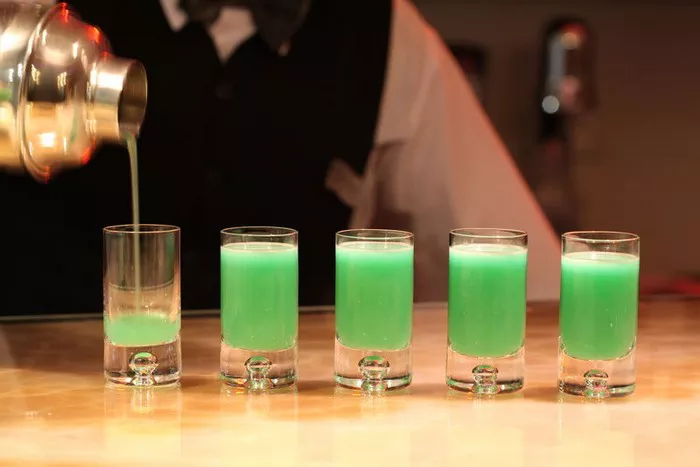Cocktails, with their enticing mix of flavors and alcohol, have long been a centerpiece of social gatherings and nightlife. However, the question often arises: do cocktails make you drunk? Understanding the effects of cocktails on inebriation involves delving into various factors, from alcohol content and serving sizes to individual tolerance levels and drinking pace.
Alcohol Content in Cocktails and Its Impact on Inebriation
One of the fundamental elements influencing whether cocktails make you drunk is their alcohol content. Different cocktails contain varying amounts of alcohol, and this factor significantly contributes to the level of inebriation one experiences. Cocktails such as martinis or margaritas typically contain spirits like vodka, gin, or tequila, which have higher alcohol concentrations compared to mixed drinks with lower-proof components like wine or beer.
The alcohol by volume (ABV) percentage in cocktails plays a crucial role in determining their potency. Spirits with higher ABV percentages, when mixed in cocktails, can lead to quicker intoxication if consumed rapidly. Therefore, while enjoying cocktails, being aware of their alcohol content is essential to understanding their potential impact on making you feel drunk.
Serving Sizes and Their Effect on Intoxication
Cocktail serving sizes also significantly contribute to whether they make you drunk. The size of a standard cocktail can vary widely, from smaller, more concentrated concoctions like the classic Old Fashioned to larger, diluted drinks such as a Long Island Iced Tea.
Consuming several standard-sized cocktails within a short timeframe can elevate blood alcohol concentration (BAC) rapidly, leading to increased intoxication. Conversely, larger-sized cocktails that contain more mixers and ice might dilute the alcohol, potentially slowing down the rate at which one becomes drunk. Therefore, understanding the serving size and alcohol content of cocktails is crucial in gauging their impact on intoxication levels.
Individual Tolerance Levels and Metabolism
Another critical aspect influencing whether cocktails make you drunk is an individual’s tolerance level and metabolism. People have varying tolerance levels to alcohol due to factors such as genetics, body weight, and drinking history. Someone with a higher tolerance might need to consume more cocktails to feel the effects of intoxication compared to someone with a lower tolerance.
Metabolism also plays a role; individuals with faster metabolisms might process alcohol more quickly, leading to a lesser effect on their level of intoxication compared to those with slower metabolisms. Understanding one’s own tolerance and metabolism is vital in gauging how cocktails might affect their level of drunkenness.
Pace of Consumption and Its Impact on Intoxication
The rate at which one consumes cocktails significantly influences the likelihood of feeling drunk. Rapidly consuming multiple cocktails in a short period increases BAC swiftly, leading to faster intoxication. Conversely, spacing out the consumption of cocktails over a more extended period allows the body more time to metabolize the alcohol, potentially reducing the feeling of drunkenness.
Factors such as social settings, peer pressure, or personal habits can influence the pace of cocktail consumption. It’s crucial to be mindful of one’s drinking pace to manage and understand the effects cocktails might have on inducing drunkenness.
Mixers and Their Role in Alcohol Absorption
Mixers in cocktails not only contribute to flavor but can also impact alcohol absorption rates. Carbonated mixers like soda or tonic water tend to accelerate alcohol absorption, potentially leading to quicker intoxication when combined with high-proof spirits.
Conversely, non-carbonated mixers and juices might slow down alcohol absorption, offering a buffer that could mitigate the effects of feeling drunk rapidly. Being mindful of the types of mixers used in cocktails can help gauge their potential impact on drunkenness.
Hydration and Food Intake
Hydration and food intake play essential roles in moderating the effects of cocktails on inebriation. Drinking water between cocktails helps maintain hydration levels and can slow down alcohol absorption, potentially reducing the feeling of drunkenness. Additionally, consuming food before or while drinking cocktails slows alcohol absorption, providing a buffer that can mitigate the rapid onset of intoxication.
Understanding the significance of staying hydrated and eating before or during cocktail consumption can significantly affect how quickly one becomes drunk when enjoying mixed drinks.
Conclusion
In conclusion, the question “do cocktails make you drunk?” is influenced by various factors such as alcohol content, serving sizes, individual tolerance levels, metabolism, consumption pace, types of mixers used, hydration, and food intake. While cocktails can indeed lead to intoxication, the degree to which they make an individual feel drunk depends on a complex interplay of these factors.
Being mindful of these elements and making informed choices regarding cocktail consumption can help individuals manage and understand the effects of cocktails on their level of drunkenness. Moderation, pacing, and awareness of personal limits are key in enjoying cocktails responsibly and minimizing the likelihood of feeling excessively drunk.


